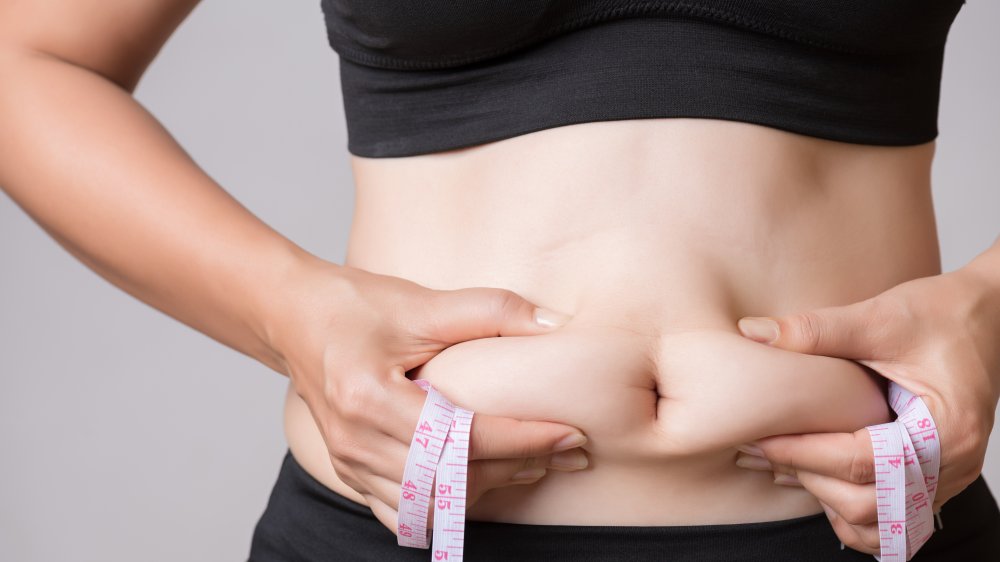This Is How To Know If You're Eating Too Many Carbs
The long-held diet myth that carbs are your enemy has long been disproved, but that doesn't mean you should necessarily be stuffing yourself with them either. As Medical Daily advises, our bodies need a certain amount of carbs in order to function properly. Personal needs will depend on an individual's age, activity level, and metabolism. But when utilized properly, they can help to fuel our muscles, support brain function, improve mood and memory, and plenty more besides.
However, eating too many carbs could ruin your healthy lifestyle and even lead to an increased risk of developing heart disease, obesity, and insulin resistance. Even though we're all different, everybody should be getting the same quality of carbs, meaning the slow-digesting kinds, such as 100 percent whole-wheat bread, steel-cut oats, lentils, beans, and whole fruits and vegetables. If you're concerned that your carb intake might be more than required, consider the following signs.
You're gaining weight around the belly
As Erin Palinski-Wade, registered dietitian and author of Belly Fat Diet For Dummies, advised Eat This, Not That!: "The Dietary Guidelines for Americans recommend that carbohydrates make up 45 to 65 percent of your total daily calories. Based on a 2,000 calorie diet, that's 225 to 325 grams of carbohydrates per day." First and foremost, eating more carbs than required could slow down your weight loss journey, regardless of whether you're putting in hours at the gym. Likewise, eating too many simple carbs provides more sugars than complex carbs, which increases weight gain, particularly around the belly.
You might also find yourself feeling hungrier, in spite of eating, as Bustle warns, because eating too many carbs might mean foregoing proteins, which release energy slower. Your digestive tract could be impacted, too, making you feel bloated. Breakouts may occur if you're getting too many carbs, because diets high in refined sugars affect your skin, too. This is particularly true if you're eating a lot of sweets.
You're feeling sluggish and tired
After your body digests simple carbs, you get a quick burst of energy, but it's usually followed by a slump. As registered dietitian Ashlea Braun explained to Bustle, "Eating a moderate amount of carbs (especially non-refined carbs high in fiber), and a consistent number of carbs, with some protein and fat, can help make you feel better, longer, and more consistently." Although fruits and veggies are very important for a balanced diet, if you're only opting to eat fruit and starchy veg, like potatoes, you could also be getting too many carbs. You need to eat plenty of non-starchy veg too, like carrots and leafy greens.
Other signals you're eating too many of the bad kind of carbs include headaches and slow cognitive function, which will affect your ability to concentrate. If you're experiencing any of these side effects, try cutting back on processed foods and refined carbs and replacing them with healthier, complex carbs. Your body and head will thank you for it in the long run.


